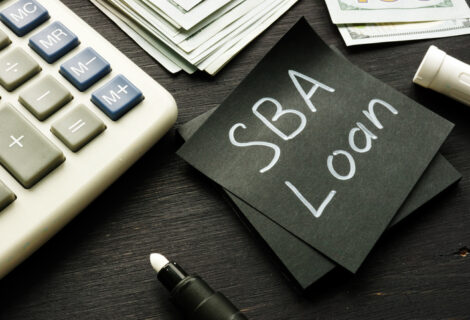5 Common Mistakes to Avoid When Applying for SBA Loans
Applying for an SBA (Small Business Administration) loan can be a lifesaver for entrepreneurs seeking to grow their businesses. However, it’s no secret that the process is complex and can feel overwhelming. Many applicants unknowingly make mistakes that lead to delays, rejections, or unfavorable terms.
But here’s the good news: each mistake you avoid increases your chances of securing the funding your business needs to thrive. Whether you’re a first-time applicant or someone looking to improve your chances after past setbacks, this guide will walk you through five common mistakes and how to avoid them.
By following these insights, you’ll be better equipped to submit a polished, professional application and enhance your chances of approval.
Why SBA Loan Applications Go Wrong
The SBA loan application process is not just about completing paperwork; it’s a thorough evaluation of your business’s current and future prospects. Unfortunately, many applicants underestimate the requirements or fail to take the time to properly prepare.
Typical mistakes often stem from a lack of attention to financial details, skipping essential steps in the planning process, or ignoring how the program evaluates creditworthiness. These errors aren’t just minor setbacks; they can leave a negative impression on lenders and jeopardize your chances.
But fear not. With the right preparation and understanding, you can tackle the loan process with confidence and set your business on the path to financial success. Here are the top five mistakes to avoid.
Mistake 1: Submitting Incomplete or Incorrect Financial Documentation
Accurate and complete financial documentation is at the core of any SBA loan application. However, it’s also one of the easiest areas to falter. Missing documents, errors in recordkeeping, or incomplete statements can derail your application and make you appear disorganized in the eyes of lenders.
Common Issues:
- Applicants exclude key financial documents such as income statements, balance sheets, or cash flow records.
- Errors, inconsistencies, or outdated figures raise red flags about the applicant’s financial management skills.
How to Avoid This Mistake:
- Ensure you compile ALL the necessary documentation, including income statements, tax returns, and debt schedules.
- Double-check the accuracy of every number and data point.
- Consider hiring an accountant or financial professional to review your materials. This step can ensure your numbers are solid and eliminate any doubts about your financial health.
Mistake 2: Weak or Underdeveloped Business Plan
Your business plan is more than a formality; it’s your sales pitch to the lender. It shows your goals, strategy, and how you’ll repay the loan. A poorly constructed or generic business plan often signals a lack of preparation and understanding of your target market.
Common Issues:
- Business plans that lack detail or feature unrealistic projections.
- Failure to clearly outline the business’s market positioning and financial goals.
How to Avoid This Mistake:
- Invest time in creating a comprehensive business plan with sections such as market analysis, organizational structure, marketing strategies, and projected growth.
- Include realistic financial and revenue projections backed by solid research.
- Use templates or work with a professional consultant if you’re unsure how to structure your plan.
Mistake 3: Neglecting Your Creditworthiness
Your credit score plays a significant role in determining your eligibility for an SBA loan. Lenders use it as a primary tool to gauge your reliability. Low scores, unresolved credit problems, or inaccuracies in your credit report are often deal-breakers.
Common Issues:
- Personal and business credit score discrepancies.
- Unpaid or unresolved debts.
- Errors in credit reports left uncorrected.
How to Avoid This Mistake:
- Check both your personal and business credit scores before applying.
- Address any debts or errors you find on your report ahead of time.
- If your credit score is less than ideal, work on improving it by paying down existing debts, avoiding new debt, and staying current on all payments.
Mistake 4: Forgetting Collateral or Personal Guarantees
SBA loans typically require collateral or personal guarantees to secure the funds disbursed. However, many applicants either fail to provide enough collateral or misunderstand the importance of offering a personal guarantee to back their loan. When this happens, lenders are less likely to view the application favorably.
Common Issues:
- Failing to identify sufficient assets as collateral.
- Underestimating the need for personal guarantees.
How to Avoid This Mistake:
- Take stock of your assets and determine their value ahead of time. These could include business equipment, real estate, or inventory.
- Be prepared to provide a personal guarantee if required. This shows lenders that you’re committed to repaying the loan.
Mistake 5: Submitting Unrealistic or Inconsistent Financial Projections
Projecting your business’s financial future is an essential part of the application. However, overly optimistic estimates or inconsistent predictions often signal poor preparation and can scare off potential lenders.
Common Issues:
- Financial projections are either too ambitious or lack a connection to your business plan.
- Lack of historical data to support the projections provided.
How to Avoid This Mistake:
- Use realistic and achievable financial forecasts based on historical data and market trends.
- Make sure your projections align with your business plan and clearly demonstrate how you’ll repay the loan.
- Regularly review and adjust projections as your business evolves.
Your Next Steps Toward a Winning SBA Loan Application
Successfully applying for an SBA loan requires careful preparation, attention to detail, and thorough research. It also requires an understanding of critical mistakes to avoid, such as incomplete documentation, weak business plans, poor credit management, insufficient collateral, and unrealistic projections.
Remember, there’s no shortcut or guaranteed way to secure a loan. However, a well-prepared application that showcases your business’s strengths and potential significantly increases your chances. Taking the time to avoid these mistakes doesn’t just help you secure funding; it also demonstrates your professionalism and readiness to grow your business.
Need expert guidance as you prepare your SBA loan application? Don’t hesitate to reach out to professionals who can review your plans, provide insights, and position your business for success. With diligence and the right support, your growth is just one approved application away.





